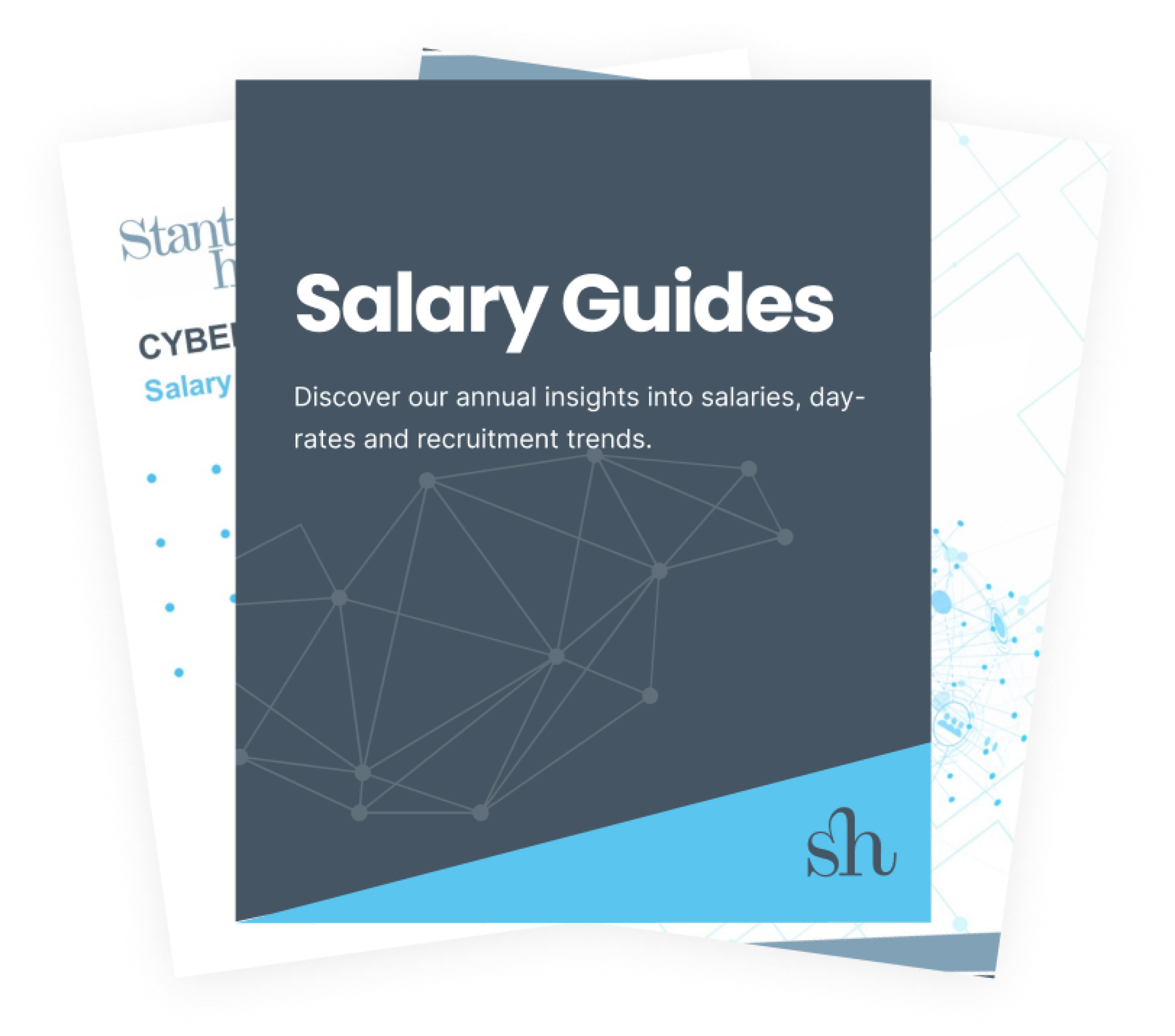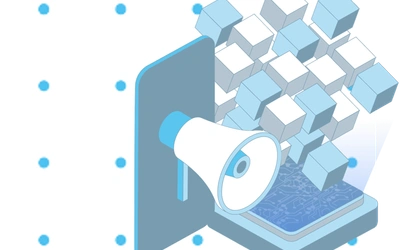
Disclosure in the Workplace: The Neurodiversity Dilemma
World Autism Awareness Day, a day that holds a special place in my heart as a mother to a young child with Autism Spectrum Disorder (ASD), is a meaningful moment to reflect on the progress we've made in fostering more inclusive workplaces and the challenges that still lie ahead.
Over the years, Stanton House has been committed to raising awareness of neurodiversity in the workplace, focusing on how we can better support neurominorities - both internally as an organisation and externally as a recruitment partner.
We’ve taken tangible steps to educate hiring managers, challenge traditional recruitment processes, and improve workplace inclusion.
Through our efforts hosting customer webinars with neurodiversity experts and running internal training workshops, one question consistently comes up:
"How can we support neurodivergent employees if they don’t disclose their condition?"
It’s a valid question, but one that exposes a deeper issue. Why don’t more neurodivergent individuals feel safe disclosing their diagnosis in the first place?
The Cost of Disclosure: A Personal Story
Disclosure is not an easy choice for many - it’s a calculated risk. I know this firsthand.
A close relative of mine was recently dismissed from her role at a private healthcare provider, shortly after disclosing that she was on the pathway to diagnosis for Attention Deficit Hyperactivity Disorder (ADHD) and Autism Spectrum Disorder (ASD). She is a highly intelligent, capable, and talented employee in her field, yet has always faced challenges with focus, completing tasks, and managing sensory overload. For years, she simply pushed through, unaware that there was an explanation for these struggles.
Her experience is part of a broader trend - many adults are now being diagnosed with neurodivergent conditions later in life. This surge in adult diagnoses isn’t because neurodivergence is suddenly more common, but rather because awareness and understanding have significantly improved. More people are recognising traits in themselves, often prompted by their children’s diagnoses or workplace struggles, leading to what some describe as a "light bulb" moment. This realisation can be both validating and overwhelming. While it can offer long-awaited clarity, it also means navigating a world that still operates primarily with neurotypical expectations.
For my relative, this self-awareness led her to seek support at work, only to be met with resistance and, ultimately, dismissal. Instead of being seen for her abilities and potential, she was penalised for needing accommodations that would have enabled her to thrive.
She wasn’t asking for special treatment - just a simple, easily implemented tool: AI-powered note-taking technology that would help her stay focused and work efficiently. But instead of being met with understanding and support, she was denied access to the very tool that could have helped her. Worse still, she was told that without a formal diagnosis, no workplace adjustments could be made.
The Reality of Disclosure: Risk vs. Reward
Like my relative, many neurodivergent professionals face the same uphill battle - not because they lack the skills to do their jobs, but because workplaces are still designed around neurotypical expectations, with limited awareness and understanding of the unique strengths and challenges associated with different neurodivergent conditions.
Once in a role, a neurodivergent employee must decide when, how, and if to disclose their condition. Disclosure is a deeply personal choice - not a professional obligation. Many choose not to disclose due to the fear of stigma, career limitations, or outright dismissal.
Some of the most common concerns include:
- Will I be seen as less capable?
- Will this cost me a promotion?
- Will my manager actually understand what I need?
- Will this change how my colleagues treat me?
- Is it worth the risk?
These concerns are not unfounded. Shockingly, a 2021 study by The Institute of Leadership & Management found that half of hiring managers admit they would hesitate to employ someone from a neurominority group. The study further detailed discomfort levels among employers regarding specific neurodivergent conditions:
- 32% were uncomfortable hiring individuals with Tourette syndrome.
- 29% expressed discomfort towards candidates with ADHD/ADD.
- 26% were hesitant about employing those with dyscalculia.
- 25% felt uneasy hiring individuals on the autism spectrum.
- 19% were uncomfortable with candidates having dyspraxia.
- 10% expressed discomfort towards hiring individuals with dyslexia.
So, it’s no wonder so many neurodivergent individuals choose to ‘mask’ - a term used to describe the exhausting practice of suppressing natural behaviours to fit into a neurotypical world. And masking isn’t just about avoiding judgment - it’s about self-preservation in a system that, despite best intentions, still isn’t fully inclusive.
Some only disclose their condition to their employer after years of masking, while others never disclose at all. And that’s okay - because disclosure should always be on the employee’s terms, not the employer’s expectations.
You Don’t Need a Diagnosis for Reasonable Adjustments
A critical misunderstanding - one that played a devastating role in my relative’s experience - is the false belief that reasonable adjustments can only be made with a formal diagnosis.
Let me be absolutely clear: A diagnosis is not a prerequisite for support.
Under UK law (Equality Act 2010), a disability is defined as any condition that "has a substantial, adverse, and long-term effect on a person's ability to carry out day-to-day activities." This definition does not require a formal medical diagnosis.
The Stanton House Neurodiversity at Work Guide for Hiring Managers emphasises that the path to diagnosis is long, complex, and often inaccessible - with ADHD and autism assessments taking years in many cases. This means that many employees, like my relative, are forced to struggle without accommodations simply because they are waiting in a system that is chronically backlogged.
Neurodivergent professionals are often told to "just get a diagnosis" - as if it were that simple. But shouldn’t workplaces be built on trust, not bureaucracy?
Sadly, my relative’s experience is not unique. In recent years, there has been a notable increase in UK employment tribunal claims related to neurodiversity discrimination. While official statistics do not specifically categorise claims by neurodiversity, analyses indicates a significant upward trend. For instance, a search of the employment tribunal judgment database revealed that such claims have risen by approximately 33% in the past year. In the United States, the Equal Employment Opportunity Commission (EEOC) has and continues to pursue cases against employers for disability discrimination, including those involving neurodivergent employees.
So, What Can Employers Do?
It’s easy to say that neurodivergent employees should feel empowered to disclose, but the burden shouldn’t be on them alone. Organisations must actively create an environment where disclosure isn’t just accepted - it’s encouraged and valued.
We often talk about bringing our ‘whole selves’ to work, but that’s only possible if people feel safe enough to do so. Neurodivergent employees shouldn’t have to weigh the risks of disclosure against their career prospects. Instead, they should feel empowered to work in a way that aligns with their strengths, without fear of judgment or limitation. Here’s how employers can help:
1. Move Beyond ‘Tick-Box’ Inclusion
Having a neurodiversity policy isn’t enough. Leaders must talk about it, share experiences, and normalise differences. When senior leaders openly discuss neurodiversity, it signals psychological safety for employees considering disclosure.
2️. Adapt the Hiring & Onboarding Process
Does your hiring process unintentionally filter out neurodivergent candidates? Are assessment criteria truly reflective of job performance, or are they just measuring conformity? Offering flexible interview formats and avoiding rigid social expectations can make a significant difference.
3️. Focus on Individual Needs, Not Labels
Not every neurodivergent individual wants to disclose a formal diagnosis, and that’s okay. Instead of waiting for an official label, managers should foster an open dialogue about what support employees need to thrive - whether it’s extra processing time, written instructions, or a quieter workspace.
4️. Reframe the Narrative
Too often, neurodiversity is framed in terms of ‘accommodations’ - as if it’s a burden on employers. Instead, let’s flip the script. Neurodivergent professionals bring unique strengths - pattern recognition, hyperfocus, problem-solving, creativity - that can drive business innovation.
6. Personalise Adjustments for Meaningful Support
Workplace adjustments aren’t one-size-fits-all - what helps one neurodivergent employee may not work for another. Instead of relying on a standard approach, employers should focus on understanding individual needs and providing flexible solutions. Simple yet impactful accommodations - such as noise-cancelling headphones, flexible commuting options, reduced lighting, or assistive software - can make a significant difference. By encouraging open dialogue and tailoring support to the individual, employers can ensure that adjustments are meaningful and truly beneficial.
7. Get Resource Equipped
If you are a manager who is avoiding a conversation for fear of offending someone or saying the wrong thing, we would encourage you to be curious and to start an open dialogue, that seeks to understand, support, and value that person. There are lots of resources available that help both employers and individuals with assessments and support for different neurodevelopmental conditions. Do-IT Profiler and HelloSelf are two such organisations that offer employee neurodiversity screening tools and ongoing support.
Download Our Guide
A couple of years ago, I worked closely with Melanie Francis, from Do-IT Solutions to produce a guide to help employers adapt their recruitment processes to be more accessible to those who think and process the world ‘differently’.
In it, we explore the strengths and challenges of those with different neurodevelopmental conditions such as Dyslexia, Dyscalculia, Tourette Syndrome, ASD and ADHD. The guide also offers practical interventions and considerations throughout the hiring process including:
- Job design & person specification
- Job advert
- Job application process
- Assessment & shortlisting
- Interviewing
- Onboarding & embedding
If you would like to learn more, you can download your copy here.
Listen to Our Guide – Now in Podcast Form!We’ve transformed our guide into an AI-generated podcast discussion, making it easier than ever to engage with our insights. By bringing the content to life through conversation, we aim to make it more accessible, immersive, and memorable. Providing an alternative way to consume information is especially valuable for those who absorb content more effectively through listening rather than reading, ensuring that individuals with different learning preferences can engage in a way that suits them best. Whether you're commuting, working, or simply looking for a convenient way to stay updated, you can now listen on the go. Please note that AI-generated speech isn’t always perfect but give it a listen here! |
Sources:
· Neurodiversity at Work: A Guide for Hiring Managers – Stanton House
· Personnel Today: Rise in Employment Tribunal Claims Over Neurodiversity Discrimination
Additional Resources:
· Human Inclusion Podcast: ‘What my son’s journey with autism has taught me about inclusion’
· Human Inclusion Podcast: Neurodiversity Q&A with Esther Boffey, D&I Partner at Stanton House
· Stanton House webinar with Melanie Francis, HR & Neuroinclusion Expert
· The Benefits of Disclosing Neurodiversity in the Workplace - Financial Times
· Neurodiversity at Work - Professor Amanda Kirby and Theo Smith
· Rebel Ideas - The power of thinking differently - Matthew Syed
· Do-IT Profiler - Neurodiversity screening and tools
· ILM - Workplace Neurodiversity - The Power of Difference
· Everymind at work - Neurodiversity Resources
· Inside Our Autistic Minds - Chris Packham - BBC documentary


















